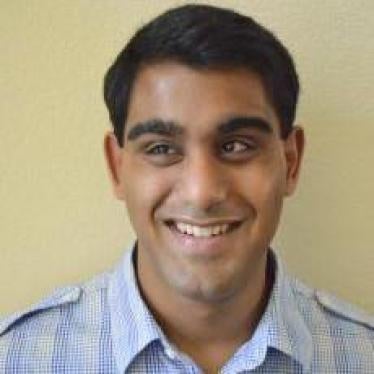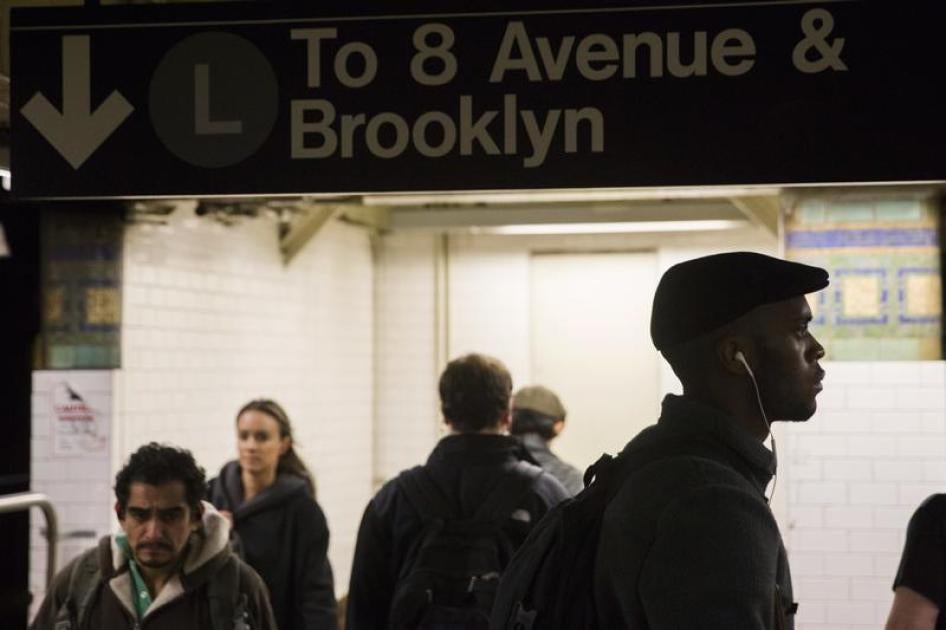Gazing intently at the sign does not yield clarity. The illuminated white letters remain tantalizingly obscure against their black background. This would not typically frustrate me. After all, since I am legally blind, I encounter the situation, and others like it, daily. At restaurants, movie theaters, and street corners, posted signs present obstacles to circumvent. Tonight, however, I am in a hurry and eager to escape a late summer rain shower. Eventually, I pull out my phone and snap a picture of the sign, "14th Street Uptown and Queens" it reads. Perfect, exactly where I want to get on the subway.
I consider my options while descending the grimy staircase. Faint smells--urine and cigarette smoke mixed with perspiration--swirl up from three levels of subterranean train platforms, an end-of-the-workday greeting. Decisively, I remove my white cane from the gym bag slung across my shoulder, carefully assemble it, and walk along with this symbol of difference, of otherness, moving from side to side in front of me. The transformation manifests instantly. People move out of my way, three commuters pause in their evening journeys to offer assistance, and two elderly women, their efforts full of good intentions, link arms and guide me toward the wrong train.
I move between identities. Twenty-something young professional, a negligible fixture of the ordinary scene, is supplanted by young disabled man, likely lost and certainly confused by his complicated, unfamiliar surroundings. Accompanying the role change come acute attitudinal shifts: curiosity, uncertainty, and admiration comingle with uninvited pity.
Standing in the packed subway car I recall the reasons I came to New York and dream of an alternate subway trip I hope to make reality.
The World Health Organization estimates that one billion people, one in seven of the world's population, have some form of physical, sensory, or psychosocial disability. Taken as a class, people with disabilities have reduced access to healthcare, education, transportation, jobs, and overall quality of life. Moreover, around the world, people with disabilities face forced institutionalization, isolation from their communities, and often-insurmountable barriers to meaningful participation in decisions about their lives, marriages, financial choices, and legal representation. Disability is still understood and treated in medical terms: the individual is perceived by a lack of ability as compared to the "normal" population.
The Americans with Disabilities Act seeks to address many of these challenges, although obstacles remain despite progress. One of the ADA's major contributions has been to affirm people with disabilities as just that, people who face disabling barriers--lack of wheelchair ramps, unavailability of braille, absence of sign language interpreters, dearth of voluntary mental health services--to full participation in society.
The United Nations Convention on the Rights of Persons with Disabilities, the core international human rights treaty and legal instrument focusing exclusively on individuals with disabilities, further helps to define these rights globally.
My portfolio this year as the Gardner Fellow at Human Rights Watch focuses on inclusive humanitarian aid in the context of conflict and natural disaster. Humanitarian organizations and UN agencies often fail to account for the needs of people with disabilities, including in planning and emergency response processes. We hope to shed light on crises in which people with disabilities have been forgotten--and push for more action, visibility, and attention.
I hope to work with governments, and partner with other organizations and advocates for people with disabilities to remove barriers and promote equity.
I want to deconstruct the stigma around disability. To create an environment in which I should have been able to put away the cane in the subway, not take it out. Please join me in these efforts. When you see some with a disability, treat them just like anyone else and raise your voice against barriers to inclusion and access.
Paras Shah is the John Gardner Fellow at Human Rights Watch.










